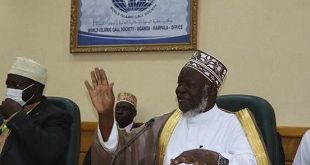
SPECIAL FEATURE | THE INDEPENDENT | According to a report by UNICEF, over 30,000 children in West Nile have been screened for malnutrition. In several districts, severe acute malnutrition, wasting and stunting in children are highly prevalent.
The 2016 Uganda Demographic Health Survey shows that malnutrition in the region stood at a towering 10.4%.
However, Dr Robert Oyaka, regional nutritionist based at Arua regional referral hospital credits the National Medical Stores (NMS) for the supplements that have helped to save lives of many malnourished children.
He, however, says it is the role of doctors, health in-charges and other concerned authorities to ensure the supplements are well utilized.
This is because reports have indicated that some of these supplements have previously ended up on the market in Eastern DR Congo.
****
This is Oyaka’s story
There is over malnutrition and under malnutrition in several parts of northern Uganda. In the West Nile, we are mainly dealing with cases of malnutrition.
There are also cases of micronutrient malnutrition. To tackle this, we give the patients vitamin A, albendazole and other medicines.
In Arua hospital, the majority of the patients receive malnutrition care, OTC (Outpatient therapeutic care) and inpatient therapeutic care.
We give the outpatients Replepinuts or Rotafa on a weekly basis but this comes after passing the hepatitis test.
However, on some occasions, some children develop medical complications in addition to malnutrition. These include; skin, eyes, heart problems and dehydration among others.
We admit and manage their complications as well as feeding. Good nutrition is vital in building children’s immunity and antibodies to enable them fight off any infections.
We put the children on supplements supplied by NMS.
Unfortunately, our supplies come through the regional referral yet my department is independent and therefore supposed to receive its own deliveries separately.
But still, these are shared with neighbors including Zombo, Pakwach, Nebbi and Malacha districts who also have high cases of malnutrition but not under the programme. We also supply main hospitals and facilities within the refugee settlements.
Anyhow, the supplementary feeding programme has helped to bring down the cases of malnutrition. Our wards used to be congested but these days we have less than 10 admissions.
Many under-fives (Under 5 years) have benefitted from cereals porridge and milk.
This has also helped to stabilize nutrition starters and on the other hand, reduced the burden of treating other issues related to malnutrition. We ensure to screen the children and take good care of them to heal better.
During hunger periods; around June and July, the cases go up but when communities start harvesting food, the cases drop. And during floods, diarrhea cases go up.
Before the supplements, it was too expensive to improvise locally. We would spend over sh150, 000 a day on a meal. But now we feed the children every two hours.
We are strengthening feeding intervals, hygiene and supervision of staff. The training has helped.
We are also looking at reducing the mortality rate from 7% to at least 5% or less.
Way forward
But I am also of the view to strengthen the Village Health Teams (VHTs) so that cases can be detected and handled in the early stages.
This helps to save the government and NMS the budget of buying these supplements.
There also is a need for more sensitisation campaigns by local authorities to educate parents in West Nile on proper feeding of children to stem the rising cases of malnutrition.
Prevention is better than cure. If we can halve the number of malnourished children, we would save a lot of taxpayer’s money or these funds can be invested in agriculture to boost food security in the region.
 The Independent Uganda: You get the Truth we Pay the Price
The Independent Uganda: You get the Truth we Pay the Price



Dear team at Independent Magazine,
I am reaching out regarding this story. The person quoted died two years ago and some of content could have been mixed up.
Could you kindly reach out to me on cntabadde@unicef.org to see how we can provide updated information. The writer could speak to our nutrition experts. Thank you